Introduction
Providing the best diet for Belgian Malinois is essential for their overall health
- Belgian Malinois need a balanced diet to sustain their energy and health
- Their intelligence and agility require a diet that supports high activity levels
- This guide covers essential nutrients, portion control, and special dietary needs
1. Essential Nutrients: Building a Balanced Diet
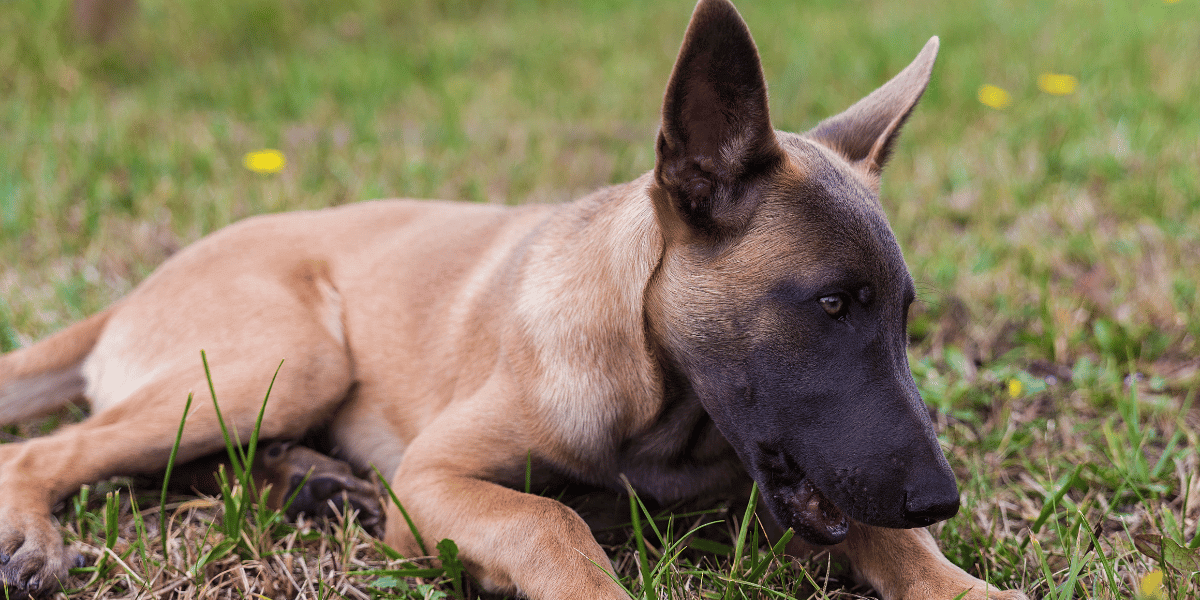
The best diet for Belgian Malinois should be rich in specific nutrients to support health.
Key Nutrients:
- Protein: Vital for muscle development and repair Aim for 22-30% protein in their diet
- High-Quality Sources: Opt for chicken, beef, lamb, and fish as primary protein sources
- Fat: Provides essential energy and supports a healthy coat Ideal fat content is 8-20%
- Healthy Fats: Include omega-3 and omega-6 fatty acids for skin and coat health
- Carbohydrates: Provide sustained energy and aid in digestion
- Complex Carbs: Choose sweet potatoes, brown rice, and barley for better digestibility
- Vitamins and Minerals: Crucial for overall health Ensure their food contains vitamins A, D, and E
- Bone Health: Include minerals like calcium, phosphorus, and potassium for bone strength
- Fiber: Essential for digestive health and weight management
- Digestive Aids: Look for fiber sources like beet pulp, pumpkin, and flaxseed
Food Recommendations:
- High-Quality Kibble: Select premium brands that list meat as the primary ingredient
- Avoid Fillers: Steer clear of products with corn, wheat, and soy
- Wet Food: Can be used in conjunction with kibble to add moisture and flavor
- Supplemental Use: Ensure it complements their nutritional needs
- Raw Diet: Opt for a balanced raw diet with meat, bones, and vegetables
- Consult a Vet: Work with a veterinarian to ensure nutritional adequacy in raw diets
2. Portion Control: Maintaining a Healthy Weight
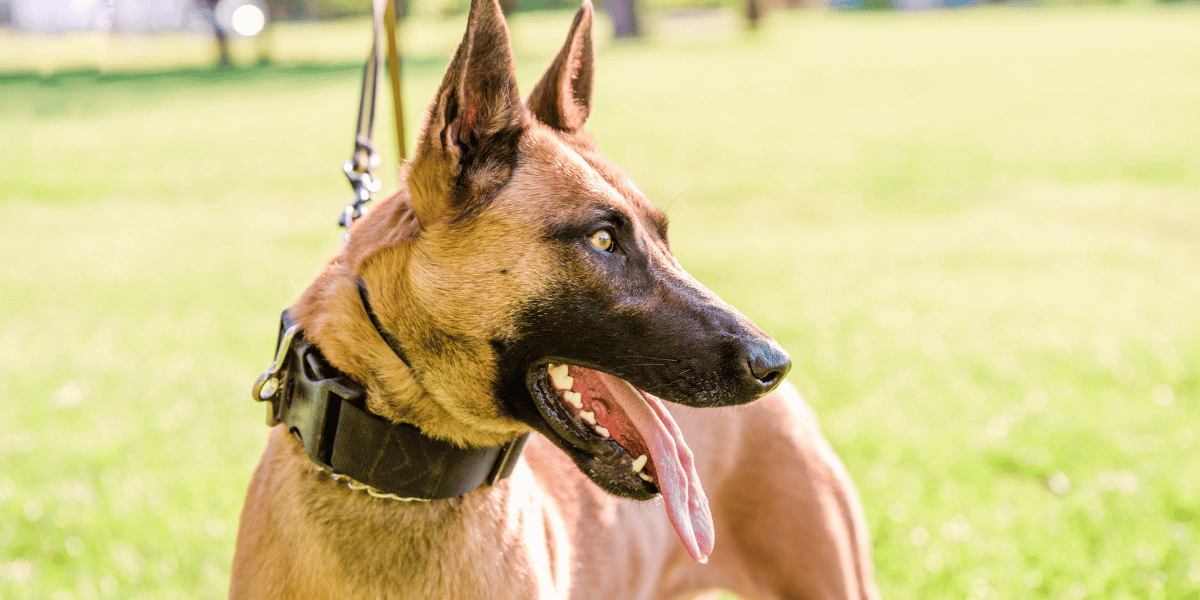
Portion control is a key aspect of the best diet for Belgian Malinois to avoid obesity
Best Practices:
- Follow Guidelines: Use the feeding guidelines provided on the dog food package
- Adjust for Age: Modify portions based on your Malinois’s age, weight, and activity level
- Monitor Weight: Regularly check your Malinois’s weight and adjust portions accordingly
- Lean Build: Aim for a lean, muscular appearance rather than a bulky one
- Divide Meals: For adult dogs, feed twice a day Puppies need 3-4 meals daily
- Prevent Overeating: Avoid free-feeding; measure out daily portions and feed accordingly
- Regular Monitoring: Adjust portions if your dog’s activity level or weight changes
3. Special Dietary Needs: Catering to Health Conditions
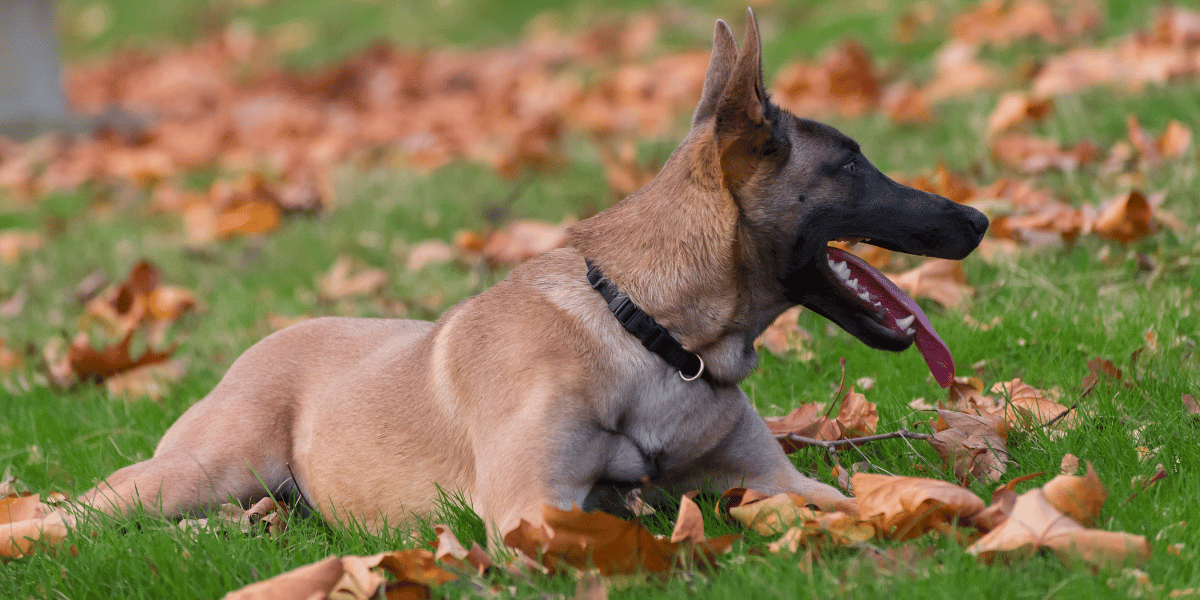
The best diet for Belgian Malinois may need adjustments based on health conditions.
Considerations:
- Active Dogs: High-performance formulas with increased protein and fat levels can be best
- Allergies: Hypoallergenic diets can help if your Malinois has food sensitivities
- Senior Dogs: Older Malinois may need diets with lower calorie formulas
- Joint Support: Consider diets with added glucosamine and chondroitin
- Weight Management: Special diets are available for overweight or underweight dogs
- Dental Health: Look for food that supports dental health and reduces tartar build-up
- Skin Health: Opt for foods with omega fatty acids to support a healthy coat
4. Supplements: Enhancing Health
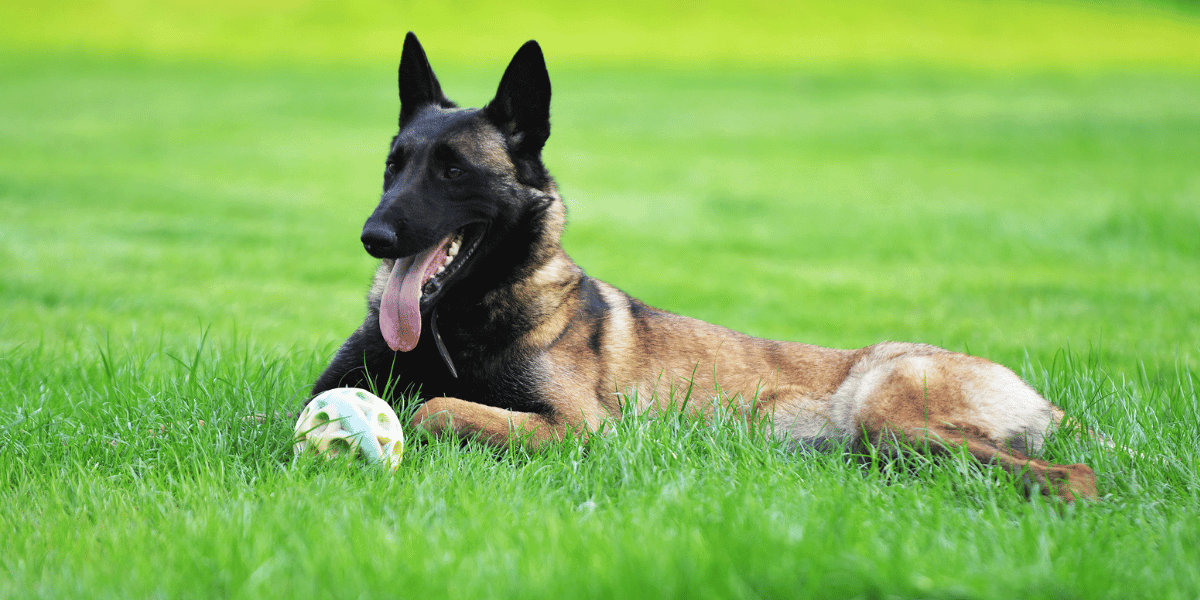
Supplements can complement, and support their overall health and specific needs.
Recommended Supplements:
- Joint Health: Glucosamine and chondroitin help maintain joint function
- Omega Fatty Acids: Promote healthy skin and coat; found in fish oil
- Probiotics: Aid digestion and gut health; consider adding to their diet
- Multivitamins: Ensure they receive a broad range of essential nutrients
- Antioxidants: Support immune function and overall vitality
- Calcium and Phosphorus: Essential for bone health and development
- Digestive Enzymes: Help with nutrient absorption and digestion
Discover the best supplements for your Belgian Malinois and keep them active with these Doberman exercise tips!
5. Hydration: Importance of Fresh Water
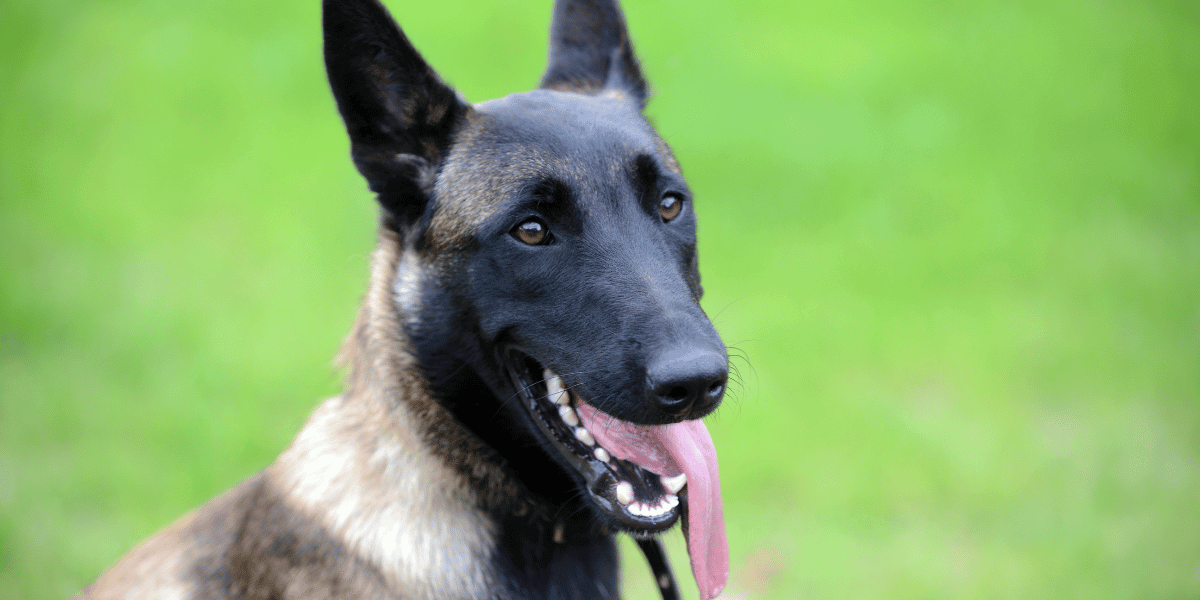
Hydration is key to the best diet for Belgian Malinois for their health and well-being.
Best Practices:
- Provide Fresh Water: Ensure clean water is available at all times
- Change Daily: Refill water bowls daily to keep water fresh
- Monitor Intake: Check that your Malinois is drinking enough, especially in hot weather
- Avoid Additives: Do not add flavorings or supplements to their water
- Encourage Drinking: Use water fountains or add water to their food to increase intake
- Hydration Needs: Adjust water intake based on their activity level and diet
Ensure your Belgian Malinois thrives by understanding the importance of fresh water in their daily routine.
6. Feeding Schedules: Establishing a Routine
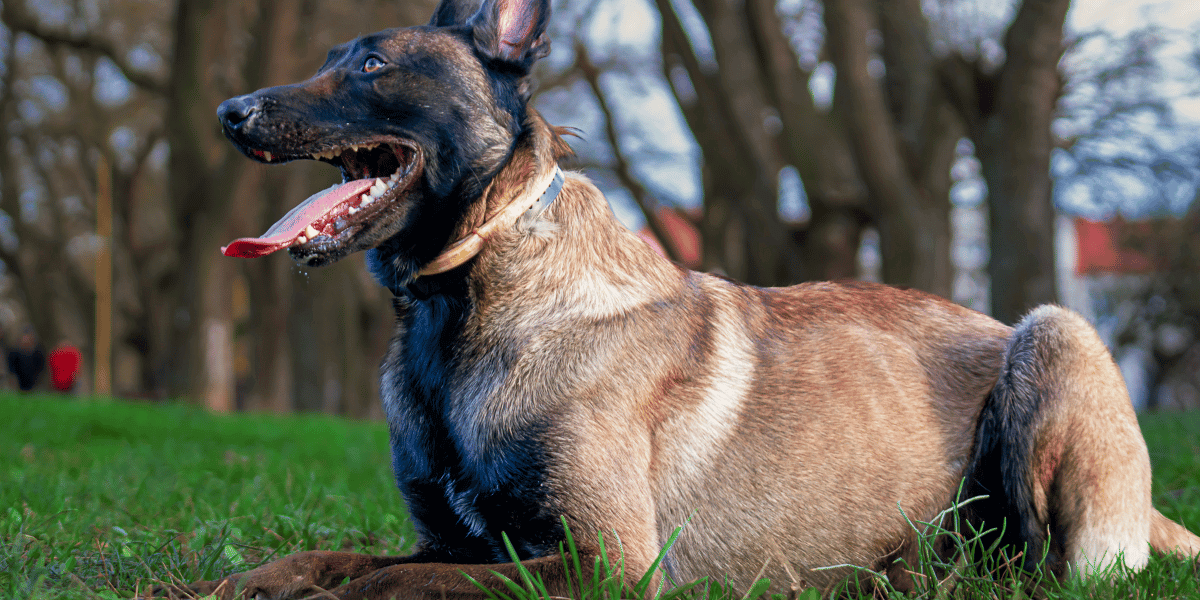
Consistent feeding schedules support a Belgian Malinois's health and digestion.
Best Practices:
- Set Meal Times: Feed at the same times each day to regulate digestion
- Avoid Skipping Meals: Ensure your Malinois eats regularly to maintain energy levels
- Adjust As Needed: Modify meal times based on your dog’s age and activity level
- Track Intake: Keep a record of what and how much your dog eats to monitor changes
- Routine Changes: Gradually adjust feeding schedules if needed to avoid digestive upset
- Consistency: Maintain a consistent routine to reduce stress and promote healthy eating habits
7. Common Mistakes: Avoiding Pitfalls
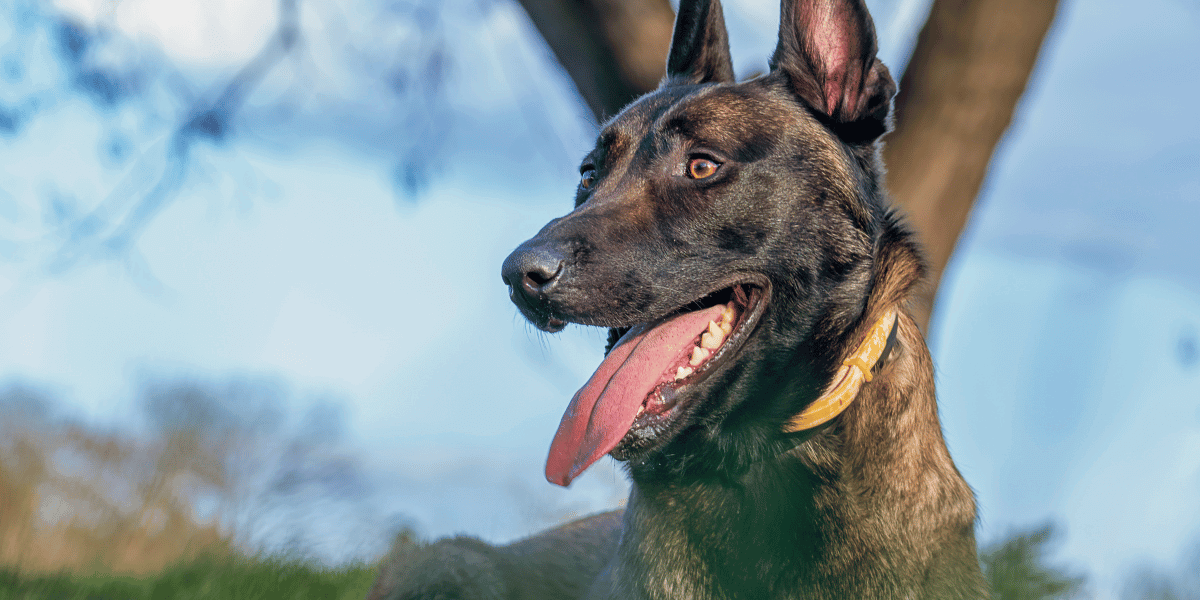
Avoiding common dietary mistakes ensures the best diet for Belgian Malinois.
Pitfalls to Avoid:
- Overfeeding: Follow portion guidelines to prevent obesity and health issues
- Inconsistent Diet: Stick to a consistent diet to avoid digestive problems and nutritional imbalances
- Table Scraps: Avoid giving table scraps, which can lead to obesity and dietary issues
- Low-Quality Food: Choose high-quality food free from fillers and artificial additives
- Sudden Changes: Avoid abrupt changes in diet; transition gradually to prevent digestive upset
- Neglecting Hydration: Ensure your dog always has access to fresh water
- Ignoring Health Issues: Consult a vet for dietary adjustments if health problems arise
Learn how avoiding common mistakes can keep your Belgian Malinois and German Shepherds healthy and thriving!
FAQs
1. What’s the best type of food for a Belgian Malinois?
- High-quality kibble with meat as the main ingredient is ideal for their diet
2. How much should I feed my Belgian Malinois?
- Consulting a veterinary nutritionist can help tailor your Belgian Malinois's diet to their specific needs
3. Are there specific diets for highly active Malinois?
- Yes, high-performance formulas with increased protein and fat levels are beneficial
4. Can I give my Malinois human food?
- Avoid human food to prevent obesity and nutritional imbalances
5. What supplements are best for Belgian Malinois?
- Joint supplements, omega fatty acids, and probiotics are recommended
6. How often should I adjust my Malinois diet?
- Adjust the diet periodically based on changes in activity level, age, or health
7. What are signs that my Malinois might need a dietary change?
- Signs include weight fluctuations, digestive issues, and changes in coat condition
Conclusion
- The right diet for Malinois and Rottweilers ensures their health and vitality
- Share these tips to promote better care and well-being for other Malinois owners
- Quality food, proper portions, and special diets help your Malinois thrive
- Comment below with your questions or tips on feeding Belgian Malinois!
References



